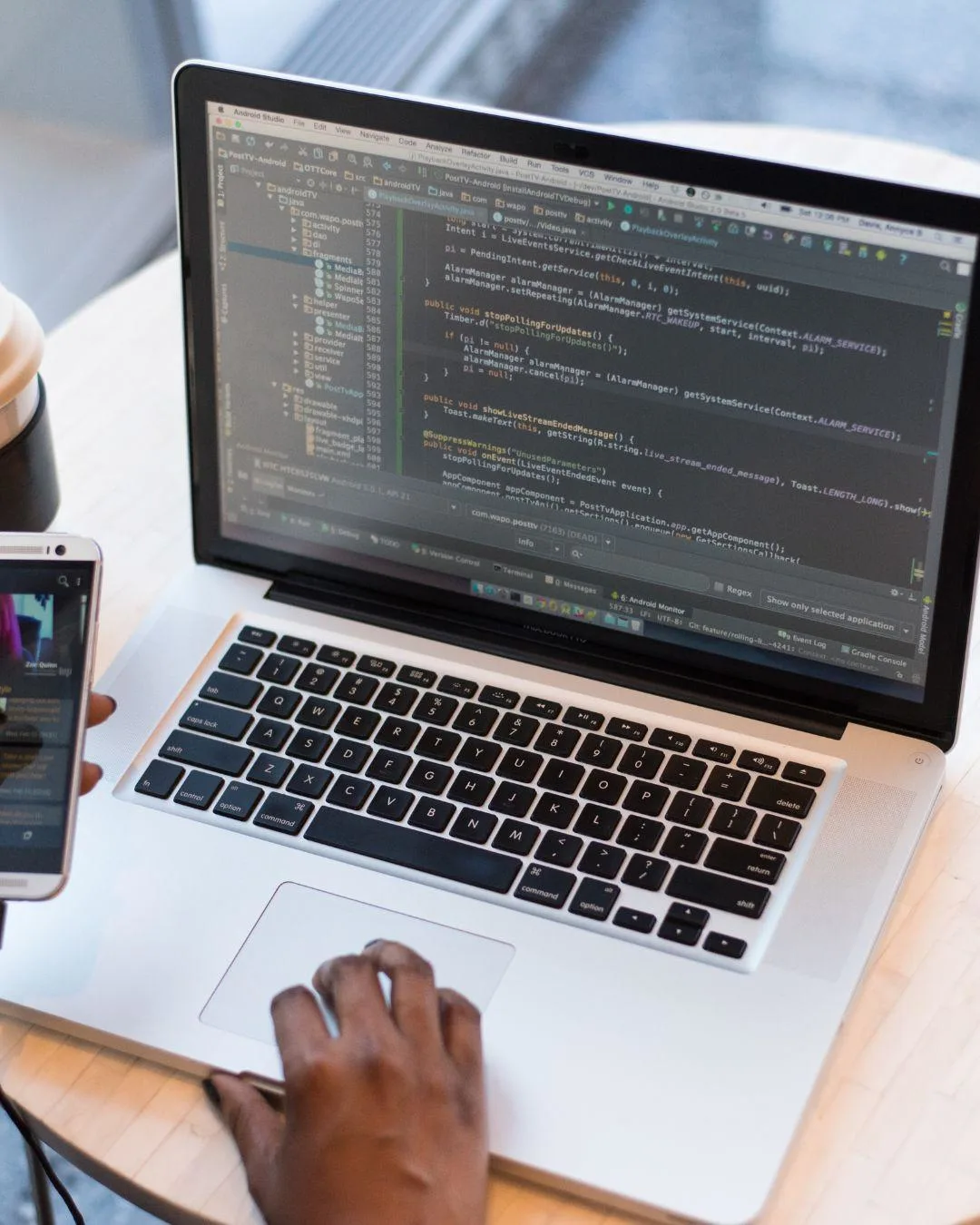How Security in App Software Development Can Protect Your Business Data
In today’s digital world, businesses are increasingly reliant on software applications to manage operations, interact with customers, and store sensitive data. As businesses move more of their processes online, the security of their applications becomes a critical concern. A data breach or cyberattack can not only compromise sensitive information but also severely damage a business’s reputation, financial stability, and customer trust.
When developing custom apps, one of the most important factors to consider is security. The security of your app will determine how well your business can protect its data, whether it’s customer information, financial records, or proprietary data. In this blog, we’ll explore how strong security measures in app software development can help protect your business data and safeguard your organization from potential threats.
Why Is App Security Critical?
Apps are constantly under attack from cybercriminals looking to steal data or gain unauthorized access to sensitive systems. In the past, cyberattacks reached an all-time high, with breaches costing businesses millions of dollars in fines, legal fees, and lost revenue. The consequences of a data breach go beyond financial losses, they can lead to:
- Loss of customer trust: Once a business is compromised, it can take years to regain customer trust.
- Damage to reputation: A security incident can tarnish a brand’s reputation and affect relationships with investors, clients, and partners.
- Legal consequences: Many industries have strict data protection regulations (like GDPR or HIPAA). A breach could result in hefty fines or legal action.
That’s why integrating security best practices into your app software development process is essential for protecting your business data and preventing cyber incidents.
Key Security Measures in App Software Development
1. Secure Data Storage and Encryption
One of the most effective ways to safeguard sensitive data is through encryption. Whether it’s data at rest (stored data) or data in transit (data being transmitted), encryption ensures that unauthorized parties cannot read or access the information, even if they manage to intercept it.
- End-to-end encryption ensures that data sent from one end of the application to another is protected and unreadable to anyone else.
- Database encryption protects data stored on your server, ensuring that even if someone gains access to your databases, they cannot read the sensitive information.
Implementing strong encryption standards is essential for complying with data protection regulations like GDPR and PCI DSS, which require businesses to take appropriate measures to protect data. Learn how custom software integration can save time and money while improving data security
2. User Authentication and Authorization
User authentication is another critical component of app security. It ensures that users are who they claim to be before granting them access to sensitive data. Common authentication methods include:
- Multi-Factor Authentication (MFA): MFA requires users to provide two or more verification methods (password + text message, biometrics, etc.), making it harder for cybercriminals to access your systems.
- OAuth and OpenID Connect: These are common protocols for secure single sign-on (SSO) authentication, allowing users to log in securely without repeatedly entering their credentials.
Equally important is authorization—ensuring that once authenticated, users only have access to the data and functions they are permitted to interact with. Implementing role-based access control (RBAC) allows businesses to assign different permissions based on user roles, limiting exposure to sensitive data.
3. Secure Coding Practices
When developing custom apps, the code itself must be secure to prevent vulnerabilities from being exploited. Secure coding practices help to reduce the chances of introducing security holes during development. Some common practices include:
- Input validation: Ensuring that all data inputs, such as form submissions, are properly validated to prevent malicious inputs (e.g., SQL injections, XSS attacks).
- Sanitization of user input: Cleaning input data to ensure it doesn’t contain harmful code or commands that could exploit vulnerabilities.
- Regular code audits: Conducting code reviews and using automated tools to scan for vulnerabilities that might have been missed.
4. Regular Security Testing and Vulnerability Scanning
Security testing should be an ongoing part of the app development process. During each stage of development, security should be integrated into quality assurance (QA) testing, ensuring that the application meets security standards before it’s deployed.
Some critical testing techniques include:
- Penetration testing: Simulating an attack to identify vulnerabilities in the system.
- Static and dynamic analysis: Using automated tools to scan the code for security flaws.
- Threat modeling: Analyzing the app to identify potential threats and how they might be exploited.
It’s important to test your app regularly, especially after updates or new features are added, to ensure that new vulnerabilities haven’t been introduced.
5. Data Backup and Recovery
In the event of a cyberattack or breach, data backup is essential to ensure that your business can quickly recover from the incident. Regularly backing up data and having a disaster recovery plan in place will allow you to restore lost or corrupted data with minimal disruption to your operations.
Data backups should be stored in a secure location, preferably with encryption, to protect against ransomware and other forms of cyber extortion.
Compliance with Data Protection Regulations
In addition to technical security measures, businesses need to ensure their app development practices comply with data protection laws such as:
- GDPR: The General Data Protection Regulation is a legal framework governing data protection and privacy in the European Union.
- HIPAA: The Health Insurance Portability and Accountability Act sets standards for safeguarding sensitive health information in the U.S.
- PCI DSS: The Payment Card Industry Data Security Standard ensures that companies securely process, store, and transmit credit card information.
Failure to comply with these regulations can result in severe financial penalties, as well as loss of customer trust. By ensuring your app’s security practices meet regulatory requirements, you protect your business and customer data.
Best Practices for Ongoing App Security
Security isn’t a one-time effort; it’s a continuous process. Here are some best practices for maintaining app security over time:
- Keep software updated: Regularly update your app to patch any newly discovered vulnerabilities.
- Monitor security events: Implement real-time monitoring and alerting to detect unusual activity or security breaches.
- Educate employees: Train your development and operational teams on the latest cybersecurity threats and how to mitigate them.
Protecting Your Business with App Security
App security is an ongoing responsibility that is crucial to safeguarding your business data. By implementing strong encryption, authentication, secure coding, and testing practices, you can mitigate the risks associated with cybersecurity threats and build a more secure foundation for your business operations.
If you’re ready to take your app development process to the next level and protect your business from data breaches, contact WeGotCode today. We specialize in custom app software development with robust security measures designed to keep your data safe and your business secure.
FAQs:
- Why is app security important for my business?
App security ensures that sensitive data, such as customer information and financial records, remains protected from unauthorized access, preventing costly data breaches and ensuring compliance with regulations. - What security measures should be implemented in app development?
Key security measures include encryption, user authentication, secure coding practices, data backup, and regular security testing to identify vulnerabilities. - How can encryption protect my business data?
Encryption ensures that data is unreadable to unauthorized users, even if it is intercepted during transmission or stored improperly. It’s essential for protecting sensitive business and customer data. - How does multi-factor authentication (MFA) improve security in apps?
MFA adds an extra layer of security by requiring users to provide multiple forms of verification (such as a password and a code sent to their phone) before gaining access to sensitive data or systems. - How often should my app be tested for security vulnerabilities?
Security testing should be conducted regularly, especially after updates or the addition of new features. Penetration testing, static analysis, and dynamic testing should be part of your routine QA process.






